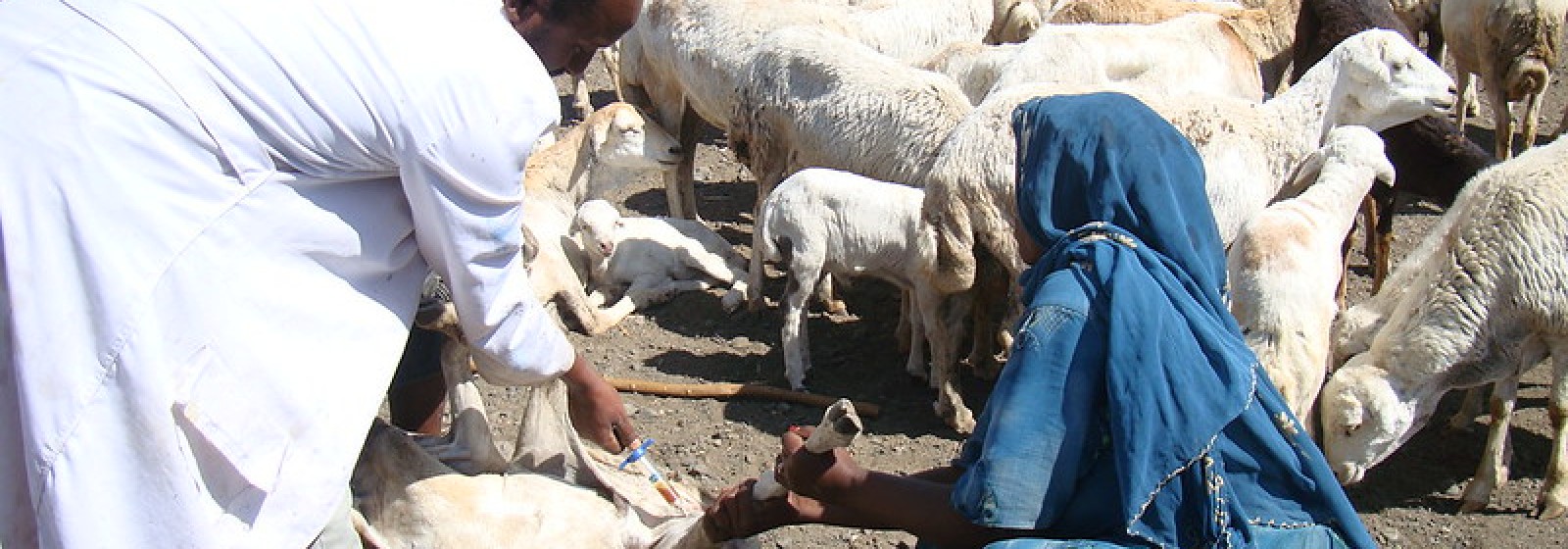With more than 55 million sheep and goats, Ethiopia is endowed with the largest small ruminant population in Africa. They contribute substantially to the livelihoods of smallholders as a source of income, food, and raw materials among others. Yet, the sector’s productivity remains low mainly due to lack of improved animal health services.
The livestock health flagship of the CGIAR Research Program (CRP) on Livestock is supporting the transformation of small ruminant value chain in Ethiopia. To this end, an integrated approach to tackle key livestock health-related challenges has been devised.
The animal health interventions are implemented by the Small Ruminant Value Chain Transformation in Ethiopia (SmaRT) project in collaboration with the International Center for Agricultural Research in the Dry Areas (ICARDA) and through the CRP Livestock with the support of the Swedish University of Agricultural Sciences (SLU).
Over the last two years, participatory epidemiology and gender studies combined with serological surveys were conducted to identify the livestock disease constraints that smallholders in the country face. Respiratory diseases, internal parasites, reproductive problems and coenuruses were among the disease challenges identified.
The study also confirmed that women play a major role in small ruminant production. They are involved in feeding and watering livestock, animal health management, cleaning and assisting during delivery.
To address these challenges the following animal health interventions have been developed:
- An integrated herd health approach is being implemented to reduce the impact of respiratory diseases.
- Community-based strategic internal parasite control has been rolled out.
- The causes of reproductive health problems in small ruminant are being systematically investigated and a control strategy to address them designed.
- Community-based coenurusis control has been introduced.
In addition, tailored training workshops were organized for 639 (31% female) smallholders, enumerators and development agents in selected project sites in the Amhara, Tigray, Oromia and the Southern Nations and Nationalities region. The training sessions covered major animal health constraints and their effects, and how the planned interventions will help to solve the problems.
Men and women champion farmers were selected from the trainees in each project site and they will assist the project in collecting data from the community.
The early indications of the impact of the trainings include:
- Farmers’ understanding has improved on the need for community-level engagement in order to successfully control targeted disease complexes.
- Farmers now better and closely observe their animals and immediately report the occurrence of diseases to veterinarians.
- Farmers actively engage in data collection on morbidity and mortality in their flocks. This has helped to achieve good and accurate data.
- Women farmers have started to make changes in routines and animal management for better results. For example, they were very satisfied with the body condition of their animals after the supplementary feeding during pregnancy was introduced in this project as part of the reproductive disease intervention.
- Improved contribution of women in providing the necessary animal health information from their experience has been noted.
- Seasonal calendars for vaccination and deworming for identified diseases and parasites have been defined at the community level.
Over the next months, the intervention continues and the project team will then evaluate impact at farm and population level. In addition, based on experiences so far, a series of training modules for livestock farmers and animal health service providers is being developed which can then be rolled out at scale.
The International Fund for Agricultural Development (IFAD) funds the SmaRT project through the CGIAR Research Program on Livestock.
